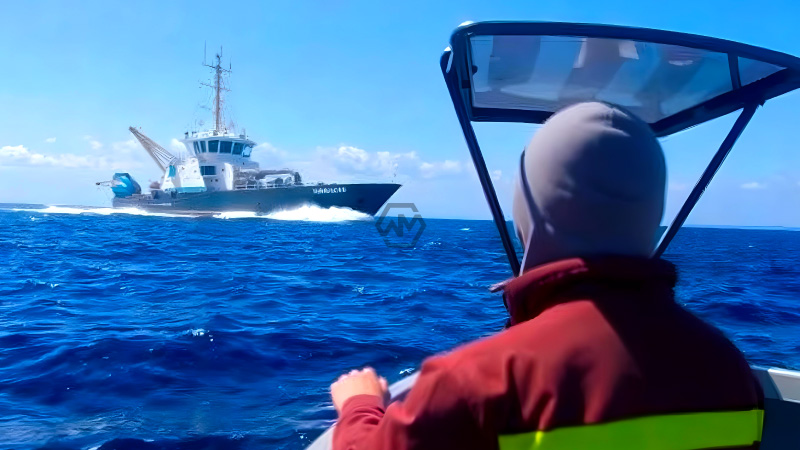- Starting October 10, the U.S. will block port access to foreign vessels accused of illegal, unreported, or unregulated (IUU) fishing.
- NOAA Fisheries identified 17 nations for non-compliance, including China, Russia, and Mexico.
- Environmental groups call for stronger sanctions, like seafood import bans, to further combat IUU fishing globally.
In a decisive move, the U.S. government will deny port privileges to foreign fishing vessels accused of IUU fishing starting October 10.
The decision targets countries identified by NOAA Fisheries for failing to take action against illegal or harmful fishing activities.
U.S. Takes Firm Stance Against IUU Fishing With Port Access Restrictions
Environmental advocates, such as Oceana’s Max Valentine, are pushing for even stronger measures. They argue that beyond denying port access, the U.S. should implement seafood import restrictions to send a powerful message to countries engaged in IUU fishing. While NOAA is open to working with these nations to regain access through improved regulatory practices, critics believe more aggressive sanctions are necessary to protect vulnerable marine ecosystems.
The fishing vessels in question engage in harmful practices, such as longline fishing and gillnetting, that pose significant threats to protected marine species and sharks. China’s longline fleet, Russia’s toothfish vessels, and Mexican vessels using gillnets in the Gulf of Ulloa are among those targeted. NOAA’s Assistant Administrator, Janet Coit, highlighted the importance of these sanctions in preserving global fisheries and marine ecosystems.
In addition to these port restrictions, NOAA Fisheries has penalized 14 nations for failing to implement regulatory programs to reduce sea turtle bycatch. These nations, including Spain, Italy, and Tunisia, have been cited for inadequate oversight of their pelagic longline fisheries. As a result, their vessels will also be barred from U.S. ports until the necessary reforms are enacted.
Despite these actions, environmental organizations argue that NOAA is not doing enough. Max Valentine, Oceana’s Illegal Fishing Campaign Director, believes that without seafood import bans, the U.S. will fail to significantly deter IUU fishing. He called for stronger measures to protect marine ecosystems, warning that port restrictions alone may not suffice.
NOAA’s decision to deny port privileges marks a crucial step in combating IUU fishing, but the call for stricter sanctions, such as import bans, continues. The U.S. must leverage all available tools to protect marine resources and promote sustainable fishing practices worldwide.
“IUU fishing and other unsustainable fishing practices undermine U.S. and global efforts



